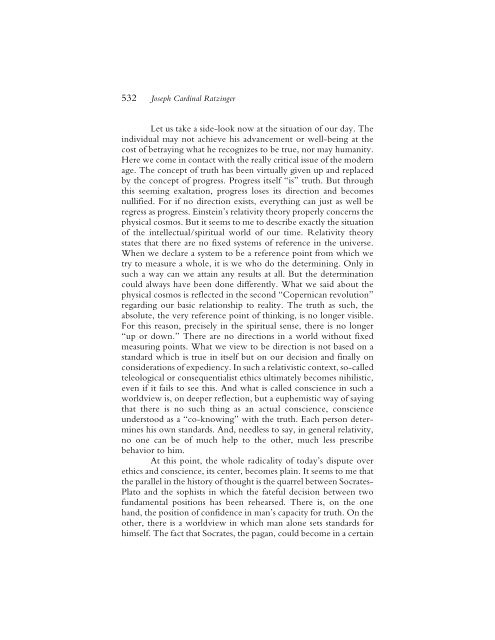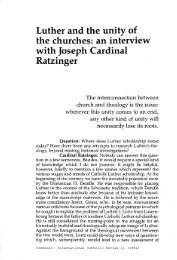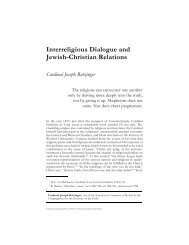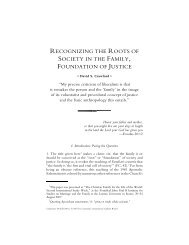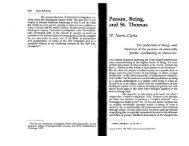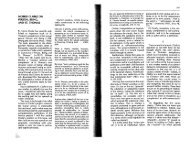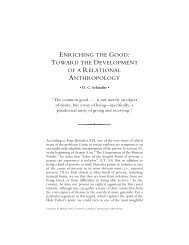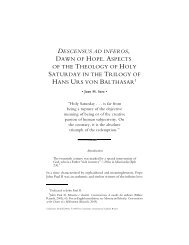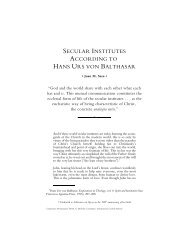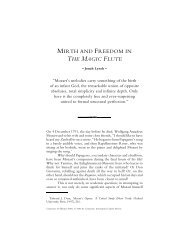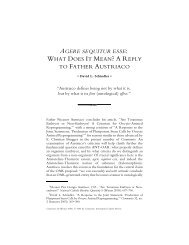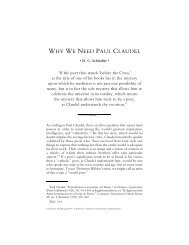Joseph Ratzinger. Conscience and Truth. Communio 37 (2010)
Joseph Ratzinger. Conscience and Truth. Communio 37 (2010)
Joseph Ratzinger. Conscience and Truth. Communio 37 (2010)
Create successful ePaper yourself
Turn your PDF publications into a flip-book with our unique Google optimized e-Paper software.
532 <strong>Joseph</strong> Cardinal <strong>Ratzinger</strong>Let us take a side-look now at the situation of our day. Theindividual may not achieve his advancement or well-being at thecost of betraying what he recognizes to be true, nor may humanity.Here we come in contact with the really critical issue of the modernage. The concept of truth has been virtually given up <strong>and</strong> replacedby the concept of progress. Progress itself “is” truth. But throughthis seeming exaltation, progress loses its direction <strong>and</strong> becomesnullified. For if no direction exists, everything can just as well beregress as progress. Einstein’s relativity theory properly concerns thephysical cosmos. But it seems to me to describe exactly the situationof the intellectual/spiritual world of our time. Relativity theorystates that there are no fixed systems of reference in the universe.When we declare a system to be a reference point from which wetry to measure a whole, it is we who do the determining. Only insuch a way can we attain any results at all. But the determinationcould always have been done differently. What we said about thephysical cosmos is reflected in the second “Copernican revolution”regarding our basic relationship to reality. The truth as such, theabsolute, the very reference point of thinking, is no longer visible.For this reason, precisely in the spiritual sense, there is no longer“up or down.” There are no directions in a world without fixedmeasuring points. What we view to be direction is not based on ast<strong>and</strong>ard which is true in itself but on our decision <strong>and</strong> finally onconsiderations of expediency. In such a relativistic context, so-calledteleological or consequentialist ethics ultimately becomes nihilistic,even if it fails to see this. And what is called conscience in such aworldview is, on deeper reflection, but a euphemistic way of sayingthat there is no such thing as an actual conscience, conscienceunderstood as a “co-knowing” with the truth. Each person determineshis own st<strong>and</strong>ards. And, needless to say, in general relativity,no one can be of much help to the other, much less prescribebehavior to him.At this point, the whole radicality of today’s dispute overethics <strong>and</strong> conscience, its center, becomes plain. It seems to me thatthe parallel in the history of thought is the quarrel between Socrates-Plato <strong>and</strong> the sophists in which the fateful decision between twofundamental positions has been rehearsed. There is, on the oneh<strong>and</strong>, the position of confidence in man’s capacity for truth. On theother, there is a worldview in which man alone sets st<strong>and</strong>ards forhimself. The fact that Socrates, the pagan, could become in a certain


